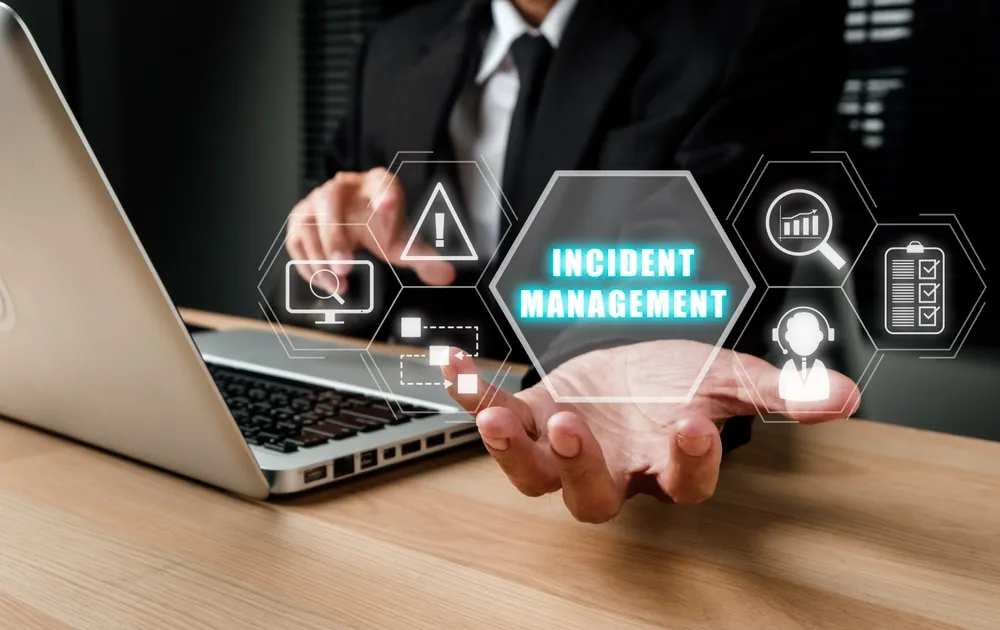Imagine a sudden server crash during peak business hours. Panic ensues. Luckily, incident management platforms come to the rescue. These platforms help businesses prepare, manage, and recover from unexpected disruptions, ensuring minimal impact on operations. With their ability to streamline response and facilitate communication, incident management platforms are quickly becoming an essential tool for companies. They provide a valuable safety net. Start a search today to find the right incident management platform for your business.
 Shutterstock: Mongta Studio
Shutterstock: Mongta StudioUnderstanding Incident Management Platforms
Incident management platforms are software tools. They help organizations deal with IT service disruptions.1 These disruptions could be anything from a simple software bug to a major server crash. The platforms are designed to ensure a swift and effective response. They help companies detect issues, manage communication, diagnose problems, and get systems back up and running as quickly as possible.
Key Features of Incident Management Platforms
Understanding how these platforms work is critical to understanding their true value. To help you understand, let’s explore some of the key features:
- Automated incident detection: Many incident management platforms have automated detection features that report issues before they disrupt business operations. This feature makes them proactive rather than reactive.
- Streamlined communication: Clear, fast communication is key during any incident. These platforms facilitate instant updates to relevant parties. This prevents miscommunication and ensures everyone stays informed.
- Effective incident response: Incident management platforms are designed to help resolve issues quickly. They provide tools for diagnosing problems, assigning tasks, tracking progress, and maintaining service levels.
- Continuous learning and improvement: Post-incident reviews are a critical part of any response. These platforms record incident details and responses. This makes it easier to learn from each incident and improve future responses.
Benefits of Incident Management Platforms
Leveraging these platforms provides a range of benefits.2 With this in mind, let’s delve into the many benefits that these platforms offer:
Improved Operational Efficiency
With automated detection and streamlined communication, these platforms save precious time during an incident. They reduce downtime and ensure business operations continue with minimal disruption. This efficiency allows businesses to remain focused on their core functions, even in the face of crisis.
Enhanced Customer Satisfaction
By resolving issues quickly, incident management platforms can help improve customer satisfaction. Customers appreciate the swift resolution of problems and clear, honest communication during incidents. This can lead to increased loyalty and a positive reputation for your business.
Better Team Coordination
These platforms improve coordination between teams. They ensure that everyone has the same information and understands their roles. This can make a significant difference in the speed and effectiveness of responses. By fostering teamwork, these platforms enhance not only incident response but also overall organizational collaboration.
Continuous Learning and Improvement
With incident records and post-incident reviews, companies can continuously improve their incident management processes. They can identify patterns, learn from past incidents, and implement improvements. This data-driven approach enables businesses to adapt and evolve, reinforcing resilience against future incidents.
How Incident Management Platforms Support Remote Work
The rise of remote work has brought new challenges to managing IT incidents. With teams scattered across locations and time zones, coordinating an effective response can be difficult. Fortunately, incident management platforms facilitate remote collaboration.
They provide a centralized hub for managing incidents. No matter where team members are located, they can log in, view the same information, and work together to resolve issues. Additionally, these systems keep everyone informed with updates and alerts.
Choosing the Right Incident Management Platform
Selecting the right incident management platform is an important decision for your business.3 Here are some steps to help you make an informed decision:
- Search online: An online search can help you look at online reviews, comparisons, and testimonials to give you a good sense of each platform’s strengths and weaknesses.
- Consider your needs: Smaller businesses might have different requirements than larger enterprises. Pick a platform that scales to your needs and fits your operational scope.
- Check integration capabilities: A good platform should easily integrate with your existing systems. This enhances functionality and ensures a smoother operation.
- Consider pricing: Free and cheap options work for some businesses, but you’ll want to make sure they have the features you need. Balance cost with functionality to get the best value.
- Ask for a demo or trial period: Many providers offer demos and trial periods. These offers allow you to test out the platform’s features and usability before making a decision.
The Bottom Line
In today’s fast-paced digital world, incident management platforms have become indispensable. They help companies navigate crises with confidence. They turn potential disasters into manageable incidents, ensuring minimal disruption to operations and maintaining customer satisfaction. As a result, they’re a strategic investment for any business.